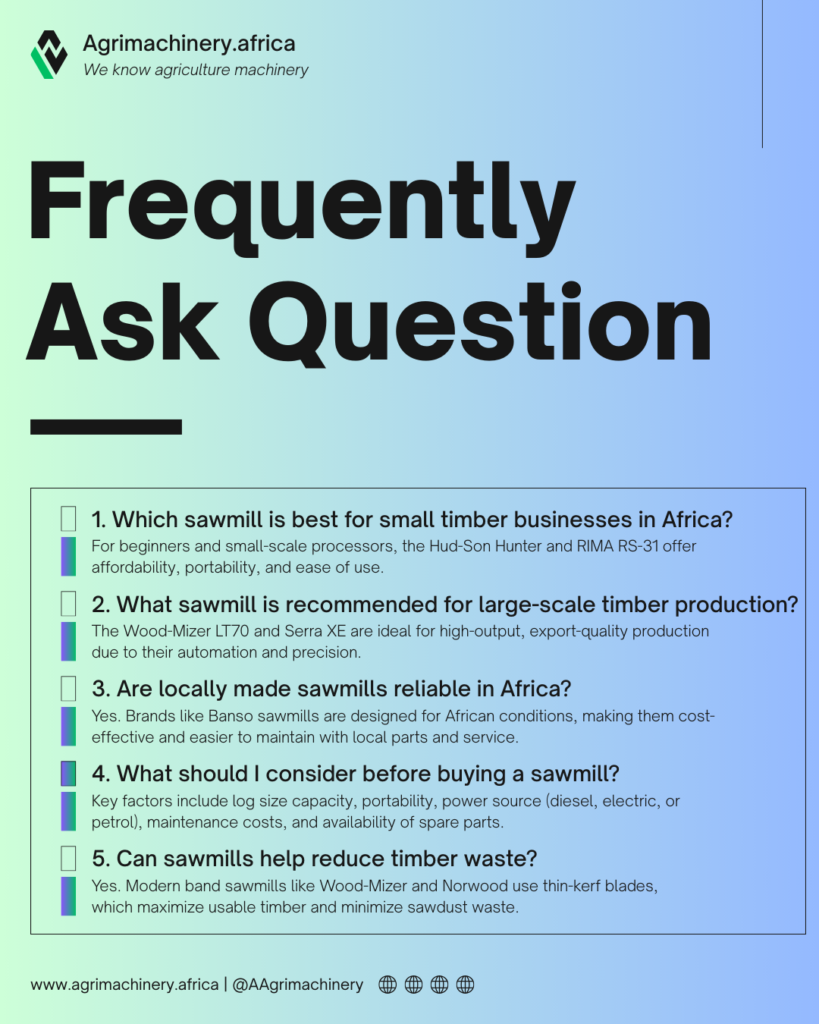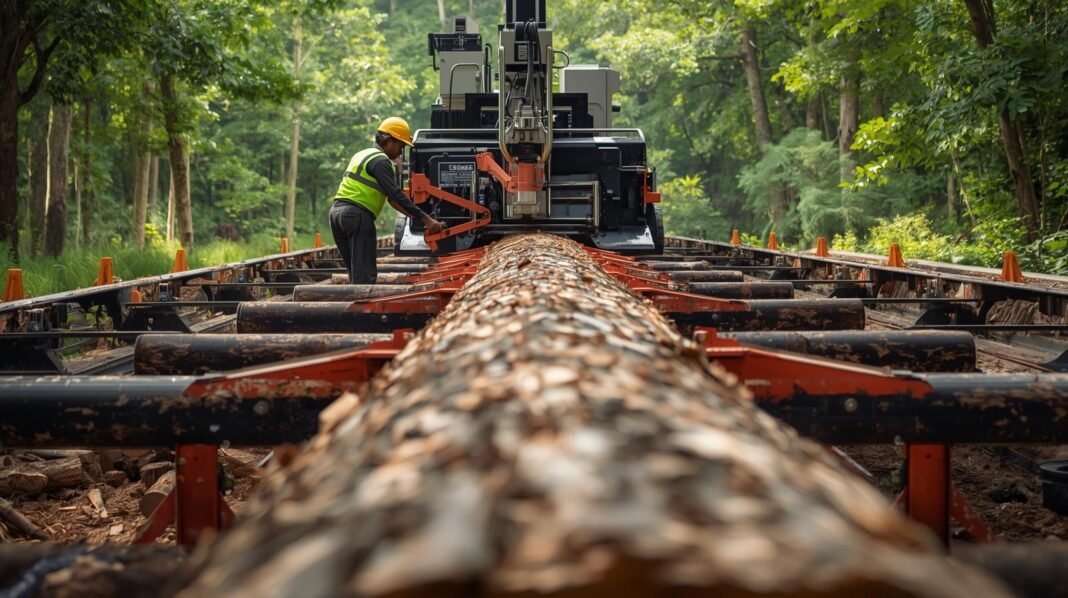The timber industry in Africa is expanding rapidly, fueled by the growing demand for wood in construction, furniture, and export markets.
Choosing the right sawmill is essential for efficiency, profitability, and sustainability. Whether for smallholder operations or large-scale timber processing, modern sawmills offer improved cutting precision, reduced waste, and higher yields.
In this article, we explore the 7 best sawmills for African timber in 2025, highlighting their features, advantages, and suitability for different needs.
1. Wood-Mizer LT70 Super Hydraulic Sawmill
The Wood-Mizer LT70 is a top choice for professional timber processors across Africa. Known for its reliability and advanced hydraulic log handling, it can handle large logs with ease.
Key Features:
-
Powerful diesel and electric engine options
-
Hydraulic log loading, turning, clamping, and leveling
-
Thin-kerf blades reduce wood waste
- Advertisement - -
Remote operator controls
Best For: Medium to large-scale timber businesses looking for high output and precision.
2. Peterson Portable Sawmills – WPF (Winch Production Frame)
The Peterson WPF is designed for heavy-duty and high-volume sawing in rugged African environments. It cuts in both directions, saving time and labor.
Key Features:
-
Wide slab cutting capacity
-
Low maintenance design with fewer moving parts
-
Easily portable for on-site timber processing
-
Double cutting for increased efficiency
Best For: Contractors and forestry operations that need mobility and versatility.
3. Norwood HD36V2 Portable Sawmill
Norwood’s HD36V2 is a durable, user-friendly machine built for serious timber production. Its heavy-duty frame ensures long-term use in demanding conditions.
Key Features:
-
Cuts logs up to 36 inches in diameter
-
Modular design with expansion options
-
Hydraulic log handling system available
-
Designed for tough environments
Best For: Timber entrepreneurs who want scalability and durability in their sawmill investment.
4. Banso Sawmills – African Engineered Solutions
Locally engineered in parts of West Africa, Banso sawmills are tailored to regional timber varieties and conditions. These machines are cost-effective while still delivering reliable performance.
Key Features:
-
Simple, rugged design suitable for African hardwoods
-
Affordable compared to international brands
-
Easy access to spare parts and local servicing
-
Strong cutting capacity
Best For: Small to medium timber businesses seeking a balance between affordability and performance.
5. RIMA RS-31 Portable Band Sawmill
The RIMA RS-31 is gaining popularity in Africa due to its affordability and strong cutting efficiency. Designed for portability, it helps processors move closer to logging sites.
Key Features:
-
Cuts logs up to 31 inches in diameter
-
Gasoline or diesel-powered engine options
-
Easy setup and transport
-
Lightweight but sturdy design
Best For: Start-up timber processors and small-scale sawmill operators.
6. Serra XE Sawmill
Serra, a German manufacturer, produces premium sawmills like the XE model, which is now being adopted in Africa for its automation and durability.
Key Features:
-
Fully automated log handling and sawing process
-
High-yield with precision sawing
-
Heavy-duty steel construction for African hardwoods
-
Remote operation systems
Best For: Large-scale timber industries targeting export-quality wood production.
7. Hud-Son Hunter Sawmill
For affordability and portability, the Hud-Son Hunter is one of the most accessible sawmills for Africa’s growing timber entrepreneurs. It’s lightweight and designed for easy assembly.
Key Features:
-
Cuts logs up to 21 inches in diameter
-
Cost-effective entry-level sawmill
-
Portable and easy to set up
-
Compatible with various blade options
Best For: Farmers and small timber processors starting out in the sawmill business.
The African timber industry is on the rise, and choosing the right sawmill is the first step to success. From high-tech giants like Wood-Mizer and Serra to affordable local solutions like Banso and Hud-Son, there’s a sawmill for every budget and business scale in 2025.
Investing in modern sawmills not only improves efficiency but also reduces waste, supports sustainability, and boosts profitability.

Also Read
Inside the Fendt 1000 Vario Gen4
Vermeer Unveils Four New Machines Tailored for Modern Ranchers
